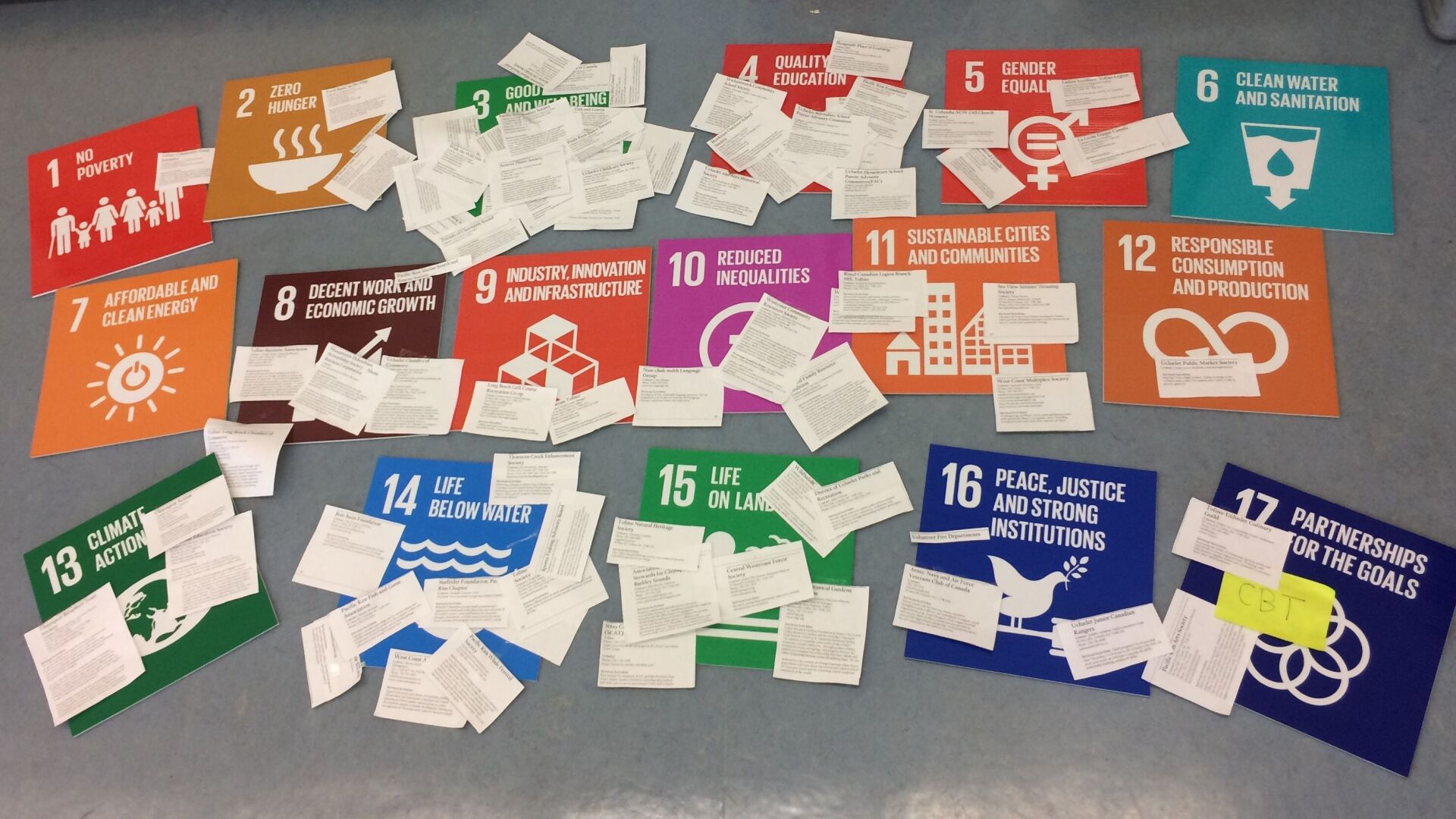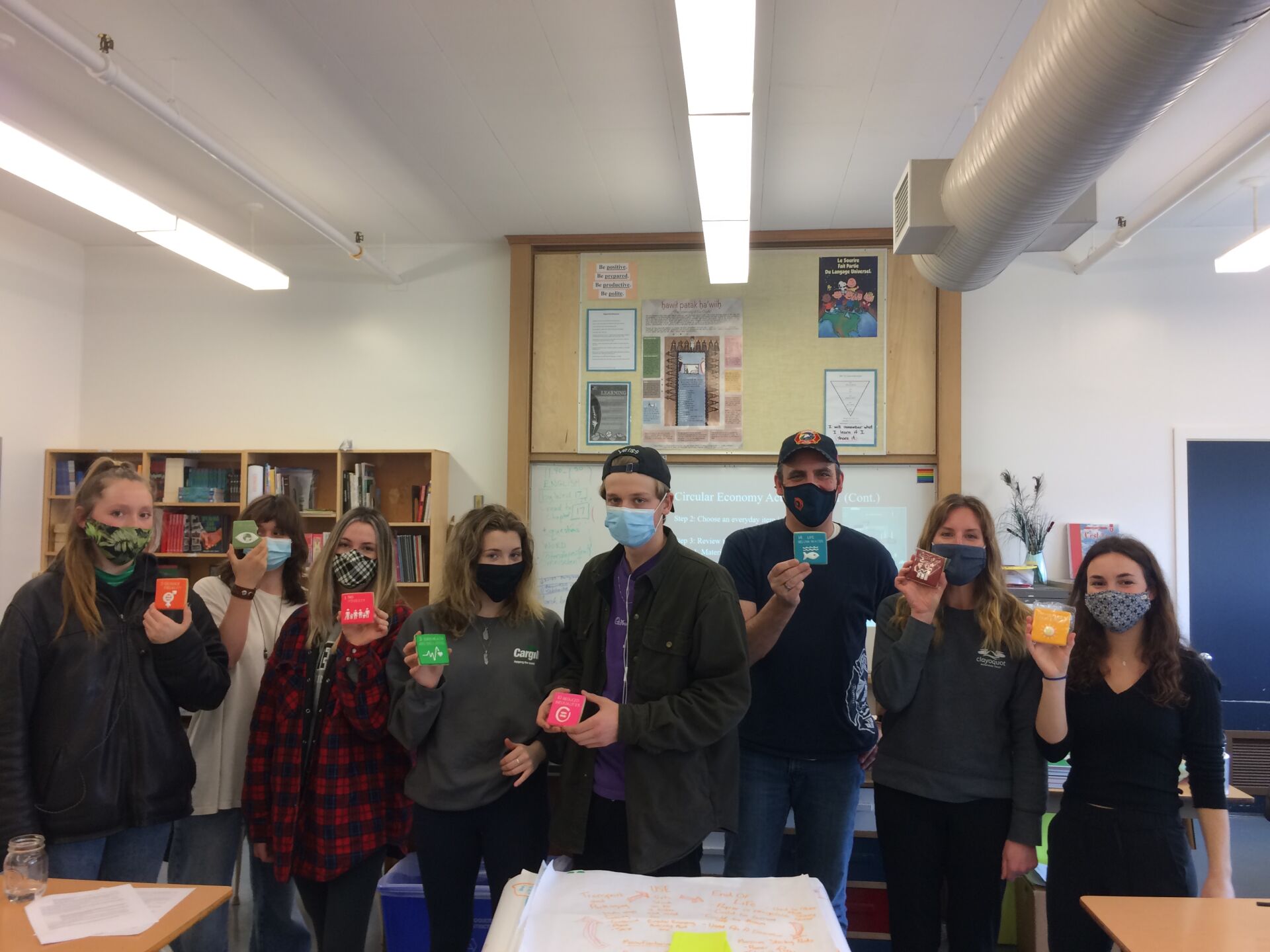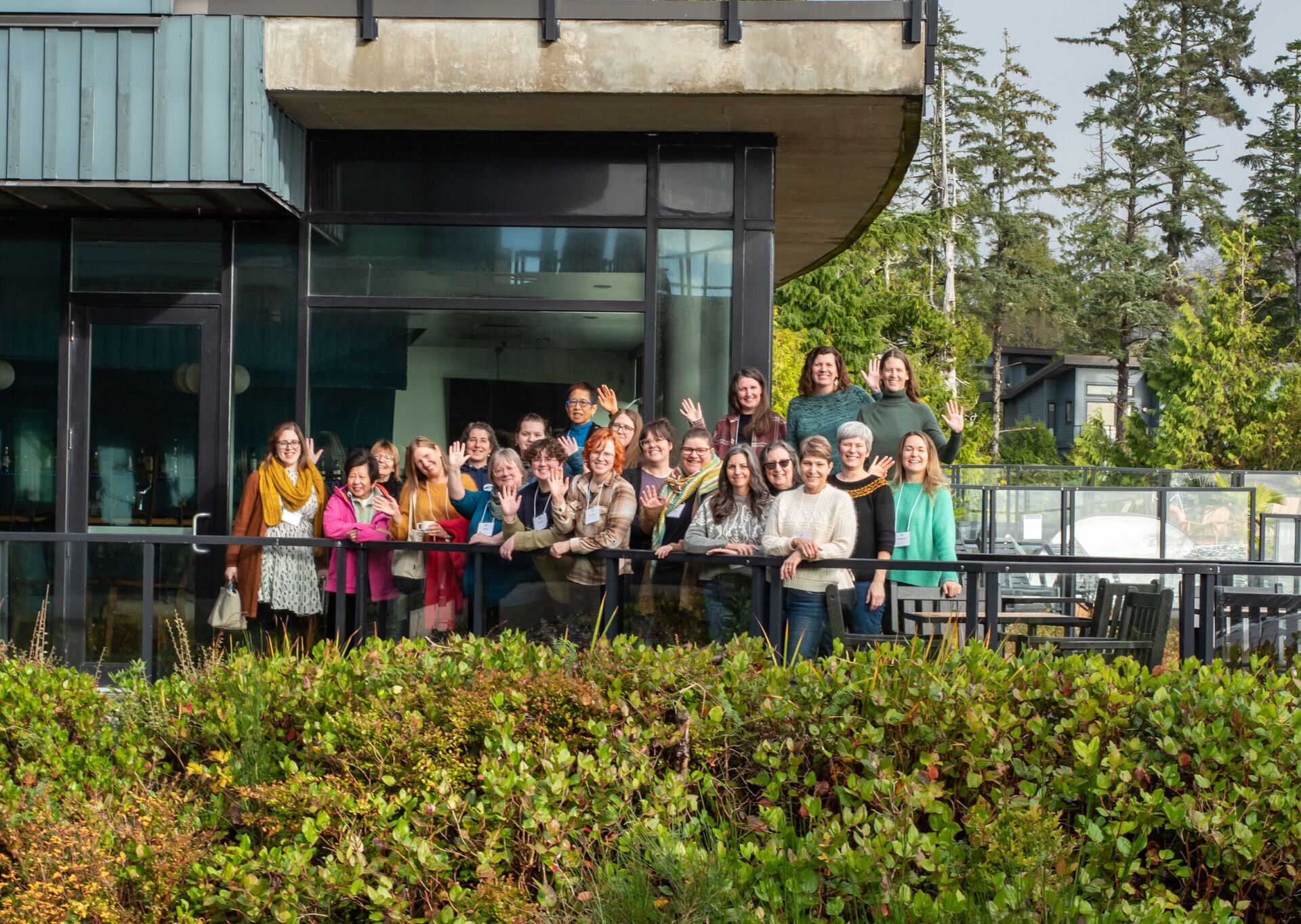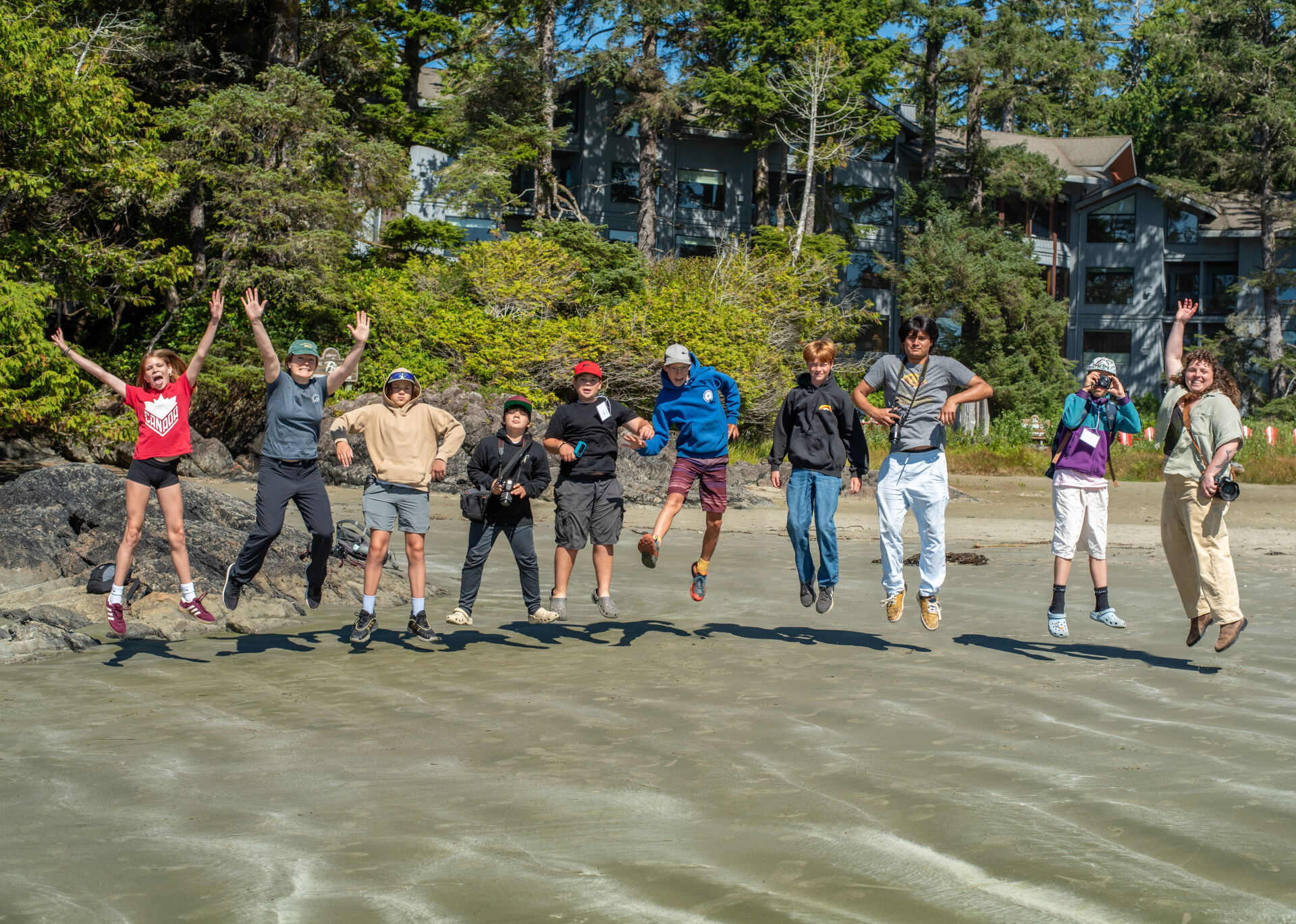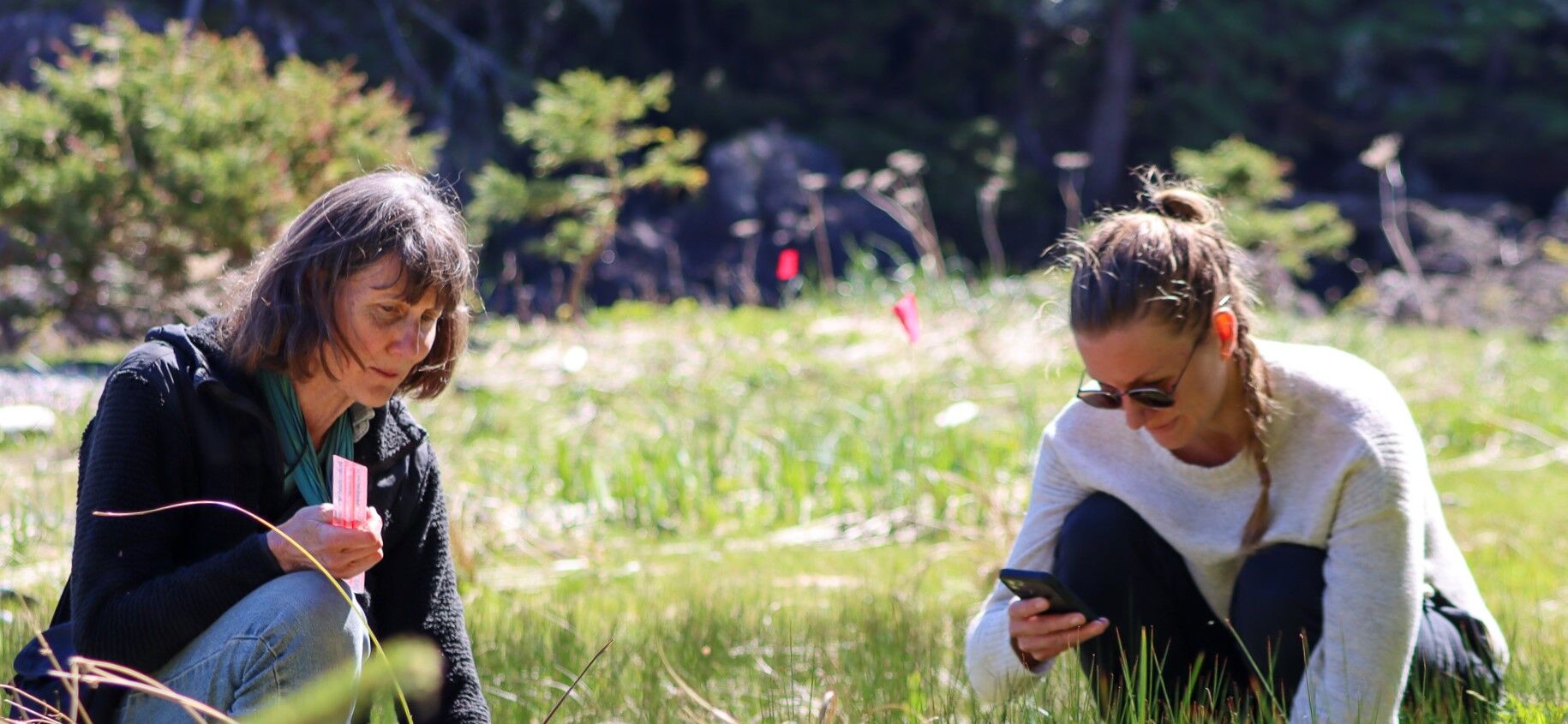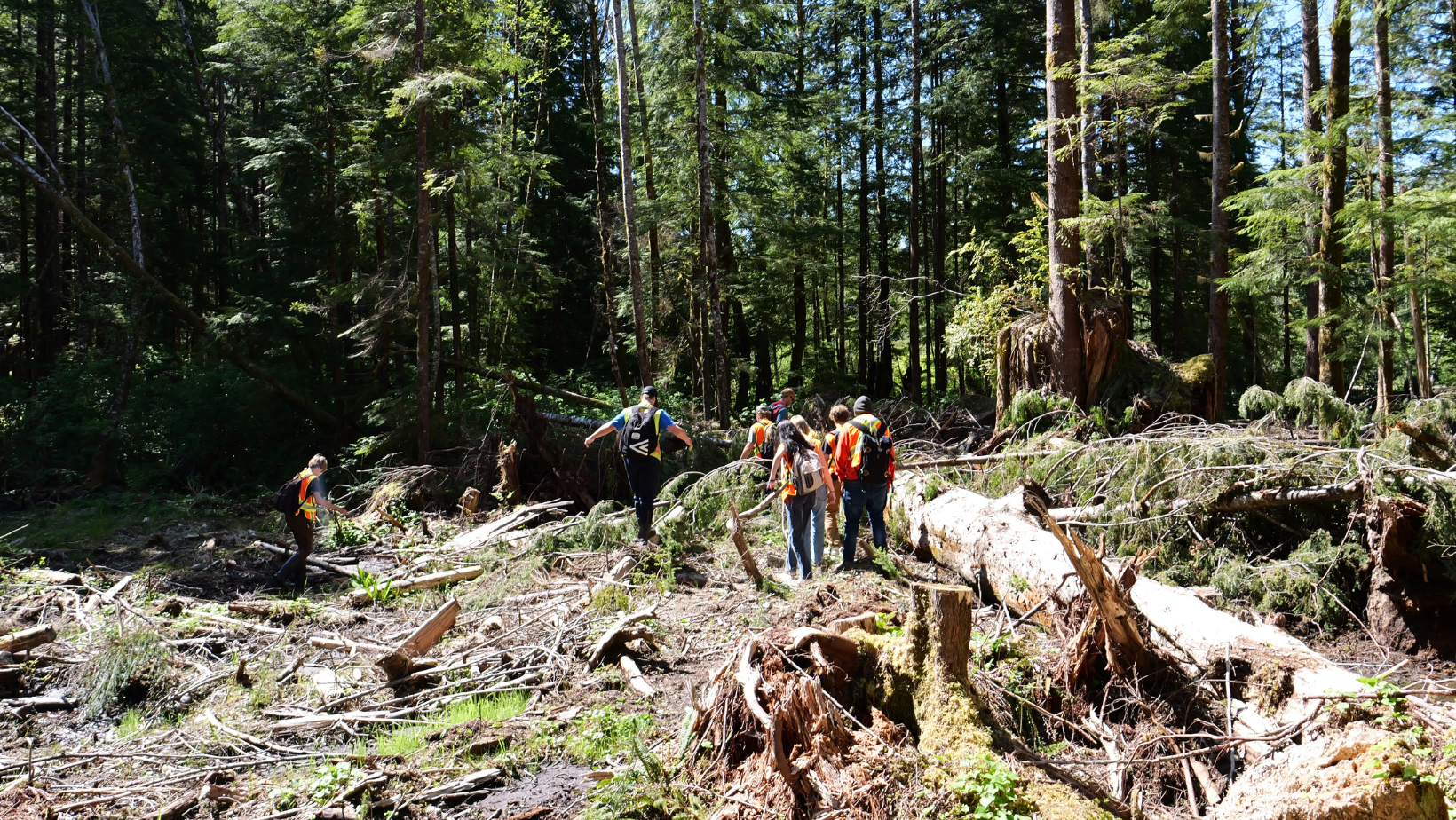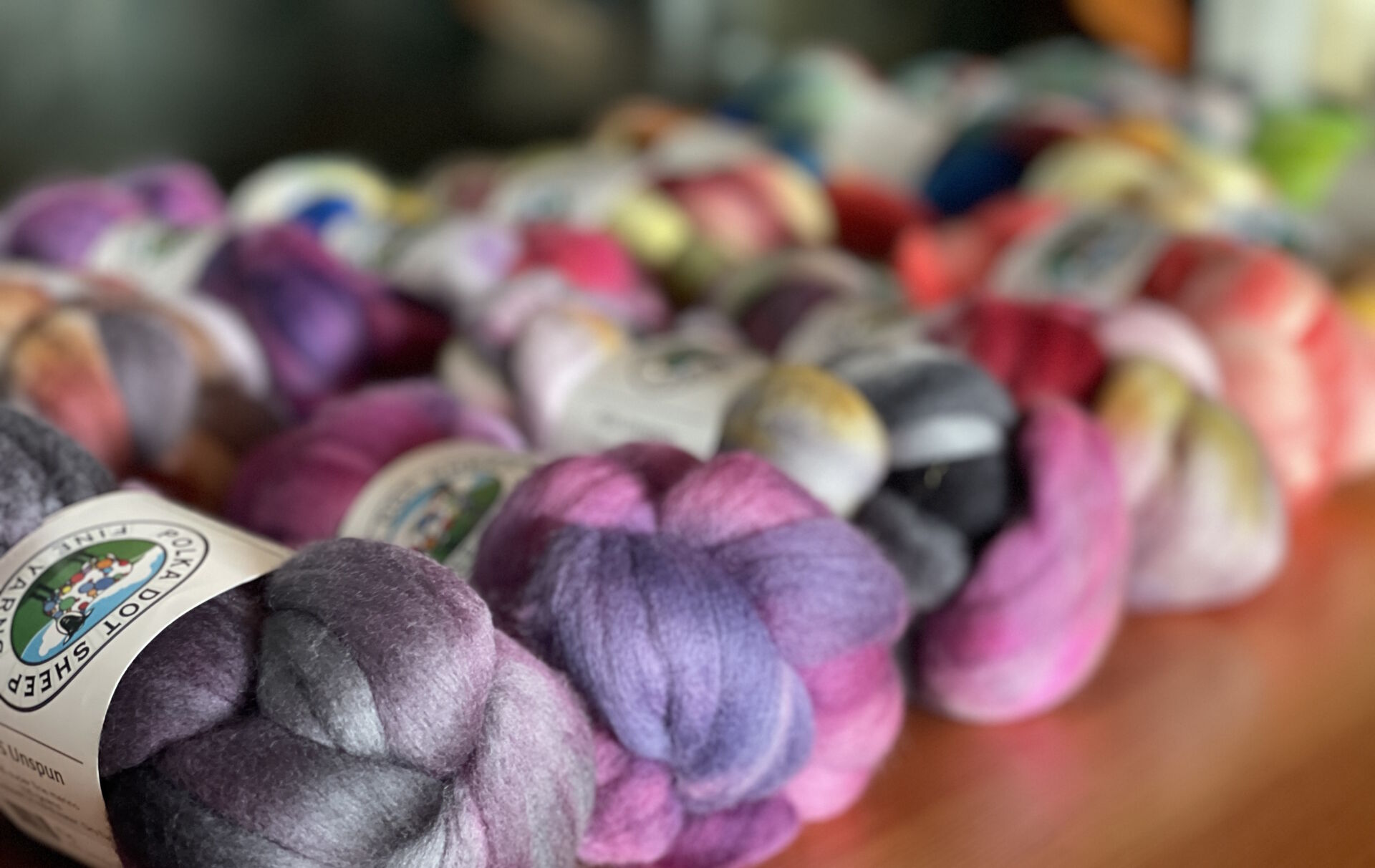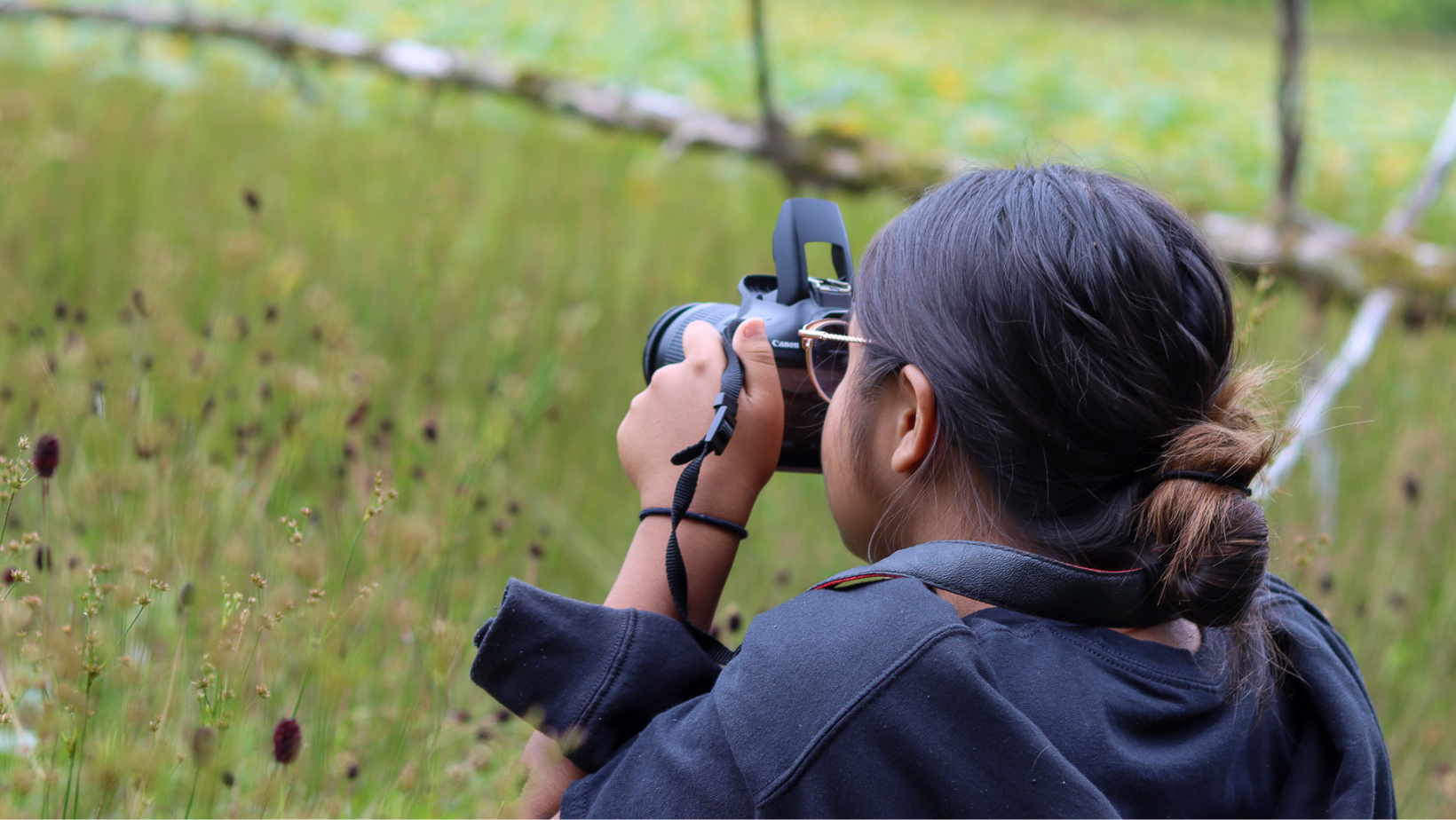The SDGs, Systems Thinking & Circular Economy: The SDG Bootcamp
On Monday, February 22nd, the West Coast NEST and Clayoquot Biosphere Trust team joined the Grade 11/12 Environmental Studies class at Ucluelet Secondary School for a Sustainable Development Goals (SDG) Bootcamp.
The Sustainable Development Goals (SDGs) are a global effort to achieve a more equitable and sustainable future for all. In 2015, world leaders from the United Nations agreed on 17 goals which provide a shared blueprint for peace and prosperity for all people and the planet by 2030, including goals such as zero hunger, no poverty, reduced inequalities, and many others. While the SDGs are global goals, they cannot be achieved without commitment and partnerships on all scales. Therefore, the SDGs are intended to be localized to reflect the needs and priorities of the local communities and ecosystems in which they are being implemented. A key component in identifying local priorities and targets is increasing local awareness and knowledge of the SDGs, which the SDG Bootcamp aims to address.
The SDG Bootcamp was divided up into four modules over the course of the day, exploring topics including the SDGs, systems thinking, and circular economy, providing students with the opportunity to learn new skills and engage in action to address community issues. The SDG Bootcamp was delivered using both lecture-style presentations and hands-on, interactive activities to ensure students had the opportunity to dive deep into each issue and strengthen their critical-thinking and problem-solving skills.
The first module of the day provided an introduction to the Sustainable Development Goals (SDGs), the United Nations, and an examination of the worldviews at the root of the SDGs. Participants were then asked to investigate one SDG and its relevance to Clayoquot Sound, curating a list of regional issues associated with the chosen SDG and potential solutions. Groups explored SDG #7: Clean and Affordable Energy, SDG #13: Climate Action, and SDG #14: Life Below Water. This activity illuminated how the SDGs, despite being global goals, have relevance even on the local scale.
In the second module of the day, the class viewed several of the West Coast NEST’s SDG YouTube series films featuring local organizations including Strawberry Isle Marine Research Society (SIMRS) and the Association of Wetland Stewards for Clayoquot and Barkley Sounds discussing how their regional activities support the global goals. Students then had an opportunity to localize the SDGs using a directory of local non-profits to identify how the work of these organizations aligns with the SDGs and to identify existing gaps in the region. This activity demonstrated that many local organizations are prioritizing SDG #4: Quality Education, SDG #3: Good Health and Wellbeing, and SDG#14: Life Below Water while fewer organizations are focusing on SDG #7: Clean and Affordable Energy, SDG #6: Clean Water and Sanitation, and SDG #1: No Poverty.
The third module of the SDG Bootcamp explored systems thinking, providing students with the systems thinking tools and knowledge to begin analyzing local issues to identify their root causes. Students participated in a systems mapping exercise of ocean plastics in Clayoquot Sound, identifying prevalent items, global systems contributing to ocean plastics, and more. Students then identified leverage points where they could intervene in the system to create systemic change.
In the last period of the day, students began exploring an introduction to the circular economy, learning about new ways to imagine how our economy functions and how goods and services are delivered. Students had the opportunity to investigate the entire life cycle of a daily item, from raw extraction to end-of-life, and then were asked to reinvent the product to fit into the circular economy. Student ideas included modular shoes to increase their longevity, heat-transfer printed books, and a recycling program for Post-It Notes!
The four modules of the SDG Bootcamp provided an interactive, and hands-on opportunity for local youth to learn valuable skills and knowledge to begin identifying the root causes of issues facing our coastal communities and come up with collaborative and creative solutions to these issues. We heard from the students that they enjoyed the combination of lectures and small group, hands-on activities, spending time learning how the work of local organizations aligns with the SDGs, digging deeper into locally relevant issues such as ocean plastics, and of course, tasting some locally made SDG cookies!
The SDG Bootcamp was an awesome day of learning for everyone involved and is part of the West Coast NEST’s larger mandate to increase local awareness and knowledge of the SDGs through educational workshops and initiatives. Other activities include SDG Framework Training workshops for local community members, organizations, and governments in the spring of 2020, a SDG filmmaking workshop for local organizations resulting in the SDG YouTube series, the SDG Colouring and Photography contests in the fall of 2020, and more. These activities align with SDG #4: Quality Education and specifically Target 4.7 Ensure all learners acquire the knowledge and skills needed to promote sustainable development, including, among others, through education for sustainable development and sustainable lifestyles, human rights, gender equality, promotion of a culture of peace and non-violence, global citizenship and appreciation of cultural diversity and of culture’s contribution to sustainable development. Along with increasing awareness of the SDGs, the Clayoquot Biosphere Trust supports the localization of the SDGs through programming, long-term monitoring of local targets and indicators in a community Vital Signs report, and informing local policy.
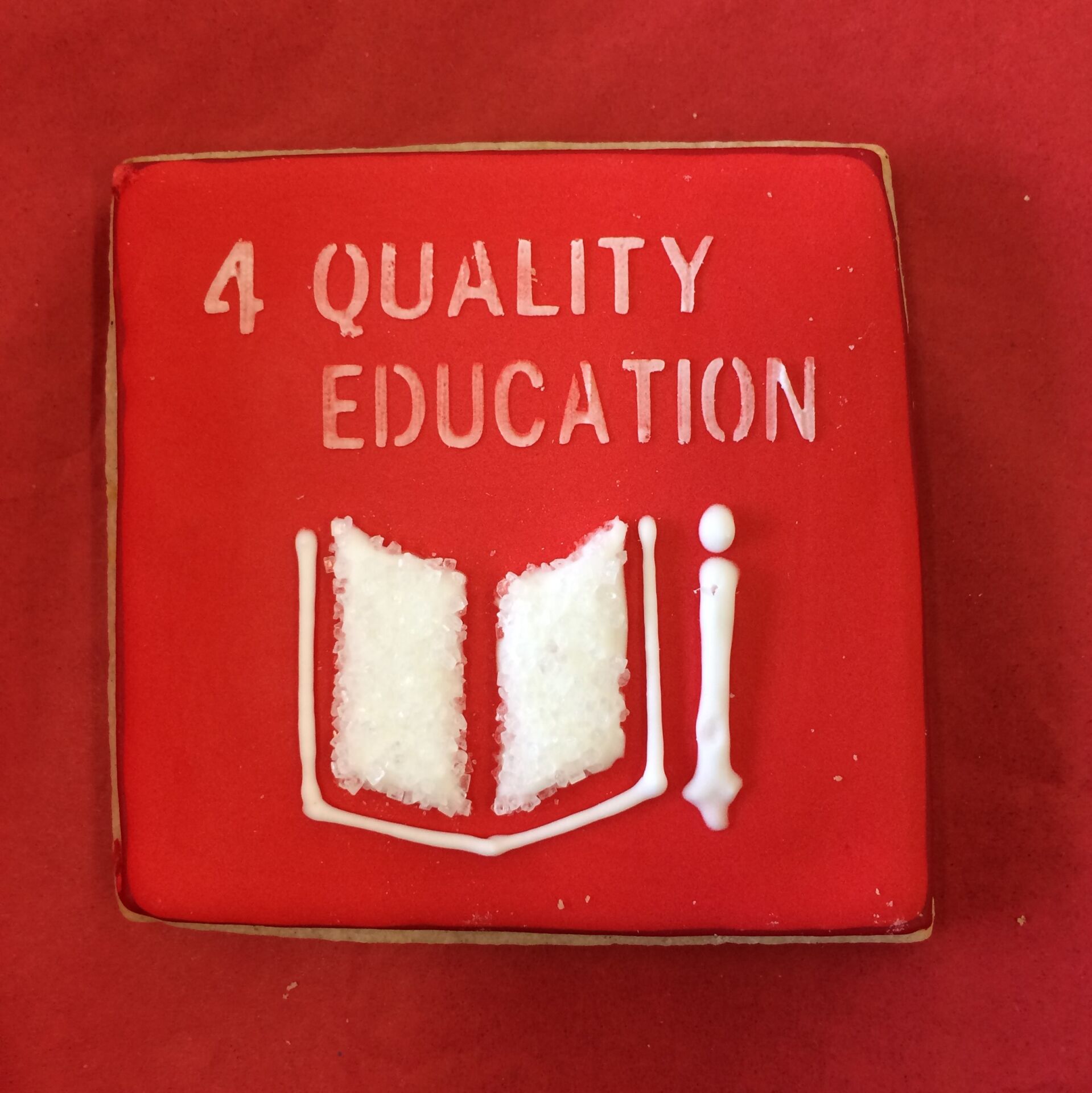
To learn more about the SDGs, and the West Coast NEST’s activities to raise awareness about the SDGs, please visit here.
To follow the West Coast NEST on social media, please visit here.
To follow the Clayoquot Biosphere Trust on social media, please visit here.

